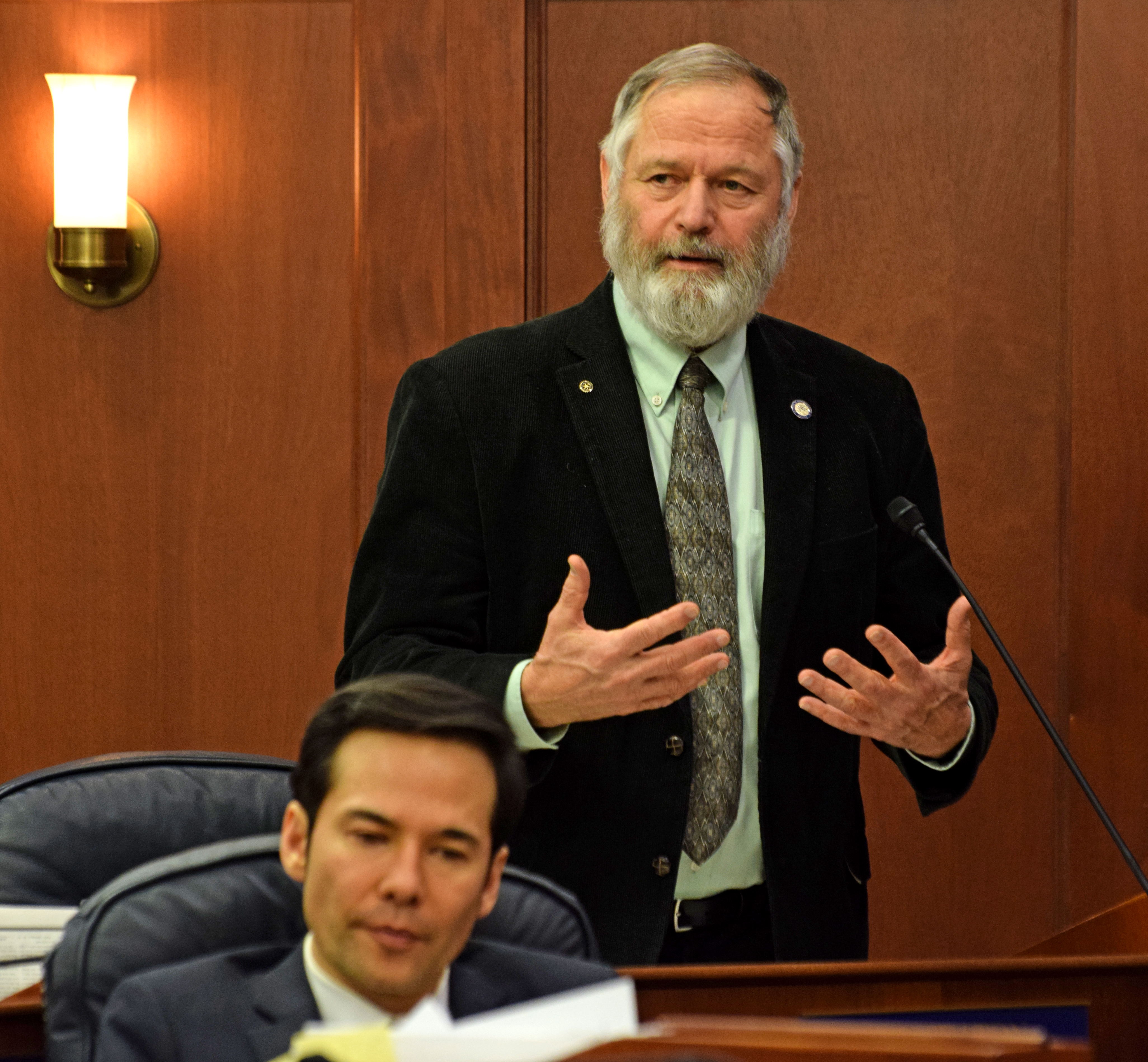The House spent six hours debating oil and gas tax credits Tuesday night. And they’re not done yet – lawmakers will pick up the bill again Wednesday.
The debate reveals a deep divide among lawmakers over how to respond to low oil prices – and the resulting state budget gap.

The debate on the floor came down to this: Should the state expect oil companies to pay taxes, even when prices are so low they might be losing money? And how quickly can the state scale back its cash support for smaller oil and gas companies?
For six hours, members of the Democratic minority offered amendment after amendment – but the divide wasn’t solely along party lines.
“I think we need to look at what we’re doing and the hole we’re digging in the budget with these tax credits, for not yielding any production, especially when there is basically zero production tax coming back,” Seaton said. “It’s hard to have production tax credits when there’s no production tax to offset it or ever retrieve that money back from.”Homer Republican Rep. Paul Seaton broke with most of his caucus to propose more aggressively scaling back tax credits for oil production.
Other Republican House members say the bill as it’s currently drafted may go too far in taxing in the oil industry.
Big Lake Republican Mark Neuman says imposing a hard tax floor of 2 percent violates the trust of an industry that the state relies upon for long-term investment.
“We made commitments to industry,” Neuman said. “We should stand by those commitments. Because if we can’t, we’re saying that we can’t be trusted.”
Lawmakers pointed out that the state is scheduled to pay out $775 million in tax credits this year – which is about the same size as proposed cuts to the Permanent Fund dividend.
Juneau Democrat Sam Kito says it’s unfair to ask education and social services to take cuts while oil and gas producers are spared.
“At a time when we’re telling municipalities that we can’t maintain the revenue sharing program because we don’t have enough money, at a time we’re telling seniors we can’t maintain the senior benefits program because we don’t have enough money, we’re saying, ‘But we can’t change things for the oil companies,’” Kito said.
But Republican members note the industry has been laying off workers and has supported the state government for decades. And even if they pay no production taxes, oil companies continue to pay more than a billion dollars to the state, mostly in royalties.
North Pole Republican Tammie Wilson says it’s shortsighted for the state to raise taxes on an industry she described as its “bread and butter” when it’s already losing money.
“Maybe we need to change our attitudes, and be glad that they did invest here, and we are getting oil down the pipeline. Because I’m telling you guys, (if) that line goes down, we’re going to have real problems,” she said.
The bill’s fate remained unclear heading into the second round of debate Wednesday.
Andrew Kitchenman is the state government and politics reporter for Alaska Public Media and KTOO in Juneau. Reach him at akitchenman@alaskapublic.org.




